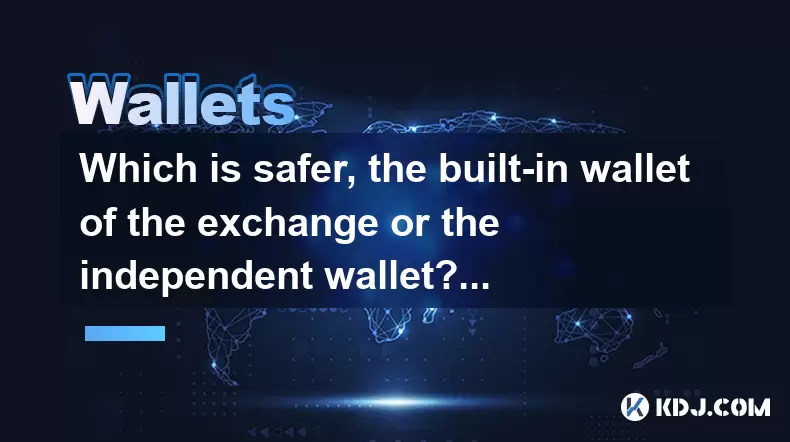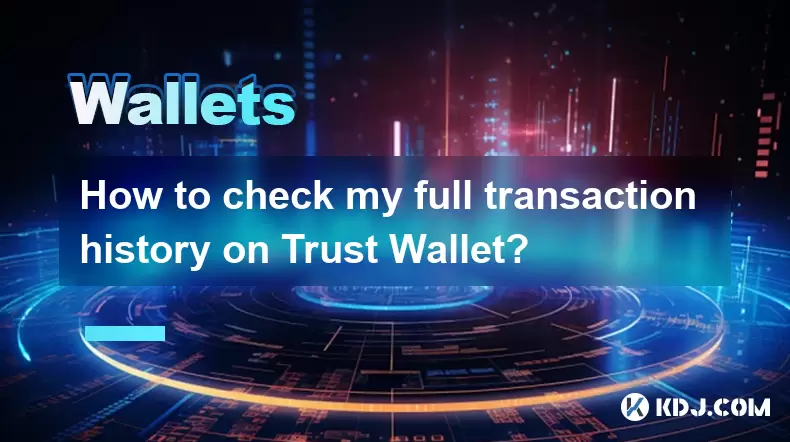-
 Bitcoin
Bitcoin $114400
1.32% -
 Ethereum
Ethereum $3499
2.20% -
 XRP
XRP $2.922
4.26% -
 Tether USDt
Tether USDt $0.0000
0.03% -
 BNB
BNB $752.6
1.53% -
 Solana
Solana $161.8
1.64% -
 USDC
USDC $0.9999
0.01% -
 TRON
TRON $0.3267
1.32% -
 Dogecoin
Dogecoin $0.1991
3.02% -
 Cardano
Cardano $0.7251
3.29% -
 Hyperliquid
Hyperliquid $38.32
3.36% -
 Stellar
Stellar $0.3972
7.58% -
 Sui
Sui $3.437
2.74% -
 Chainlink
Chainlink $16.29
3.65% -
 Bitcoin Cash
Bitcoin Cash $545.3
3.70% -
 Hedera
Hedera $0.2482
7.49% -
 Ethena USDe
Ethena USDe $1.001
0.03% -
 Avalanche
Avalanche $21.40
2.02% -
 Toncoin
Toncoin $3.579
1.56% -
 Litecoin
Litecoin $109.3
2.20% -
 UNUS SED LEO
UNUS SED LEO $8.951
-0.18% -
 Shiba Inu
Shiba Inu $0.00001220
2.75% -
 Polkadot
Polkadot $3.613
2.99% -
 Uniswap
Uniswap $9.173
3.78% -
 Monero
Monero $302.6
2.62% -
 Dai
Dai $0.0000
0.00% -
 Bitget Token
Bitget Token $4.320
1.52% -
 Pepe
Pepe $0.00001048
3.40% -
 Cronos
Cronos $0.1314
4.33% -
 Aave
Aave $259.4
3.54%
Which is safer, the built-in wallet of the exchange or the independent wallet? How to choose?
Using an independent wallet gives you full control and better security for your crypto, while exchange wallets carry higher risks due to third-party management.
Jun 17, 2025 at 03:14 am

Understanding the Differences Between Exchange and Independent Wallets
When it comes to storing cryptocurrencies, users often face a crucial decision: whether to use the built-in wallet of the exchange or opt for an independent wallet. The former is provided by cryptocurrency exchanges as a convenient way to hold digital assets after purchase, while the latter refers to wallets that are not tied to any exchange platform.
The key distinction lies in control. With an exchange wallet, private keys — which are essential for accessing and transferring funds — are typically managed by the exchange itself. This means users do not have full control over their assets. In contrast, independent wallets, whether software-based like Trust Wallet or hardware-based like Ledger, give users complete ownership of their private keys.
Risks Associated with Exchange Wallets
One of the primary concerns with using exchange wallets is security. Since the exchange holds the private keys, it becomes a centralized point of failure. If the exchange suffers a security breach, user funds can be compromised. History has shown multiple instances where large platforms were hacked, leading to significant losses for users who stored their coins on the exchange.
Additionally, regulatory risks play a role. Exchanges may freeze accounts, restrict withdrawals, or even suspend operations due to legal pressures. When your funds are held within the exchange’s wallet system, you are subject to its policies and vulnerabilities. Therefore, keeping substantial amounts of cryptocurrency in an exchange wallet poses a considerable risk.
Advantages of Using Independent Wallets
On the other hand, independent wallets offer greater autonomy and security. By managing your own private keys, you eliminate the dependency on third-party platforms. This approach aligns with the core principle of blockchain technology — decentralization and personal responsibility.
Independent wallets come in various forms, including software wallets, hardware wallets, and paper wallets. Each type offers different levels of convenience and security. For example, hardware wallets provide offline storage, making them less susceptible to online threats. Software wallets, such as mobile or desktop applications, offer ease of access but require careful management of backup phrases and passwords.
How to Choose the Right Wallet Based on Your Needs
Your choice between an exchange wallet and an independent wallet should depend on your usage pattern and risk tolerance. If you're actively trading and frequently buying or selling cryptocurrencies, keeping a small portion of your holdings in an exchange wallet might be practical for quick transactions.
However, if you're investing for the long term or holding significant amounts of crypto, moving your assets to an independent wallet is advisable. Consider factors like how often you need to access your funds, your familiarity with wallet setup and recovery processes, and your willingness to take full responsibility for security measures.
Steps to Transfer Funds from Exchange to Independent Wallet
Transferring funds from an exchange to an independent wallet involves several critical steps:
- Ensure your independent wallet supports the specific cryptocurrency you intend to transfer.
- Generate a receiving address within your wallet application.
- Log in to your exchange account and navigate to the withdrawal section.
- Select the correct cryptocurrency and paste the receiving address from your wallet into the designated field.
- Confirm the transaction and wait for the blockchain confirmation process to complete.
It's vital to double-check the receiving address and ensure network compatibility (e.g., ERC-20, BEP-20) to avoid irreversible loss of funds. Mistakes during this process can result in permanent asset loss, so taking time to verify every detail is crucial.
Security Best Practices for Independent Wallet Users
Once you've moved your funds to an independent wallet, maintaining strong security practices is essential. Begin by securely backing up your wallet’s recovery phrase — usually a sequence of 12 or 24 words. Store this phrase in a safe, offline location and never share it with anyone.
Enable additional layers of protection, such as PIN codes or biometric authentication, if available in your wallet app. Avoid downloading wallet applications from unofficial sources, as they may contain malware. Always keep your wallet software updated to protect against known vulnerabilities.
If you’re using a hardware wallet, treat it like a physical vault. Keep it disconnected from the internet when not in use and store it in a secure place. Never expose your private keys or recovery phrase to online environments, including cloud storage services.
Frequently Asked Questions (FAQ)
Q: Can I lose my funds permanently if I forget my wallet password?
Yes, losing access to your wallet password or recovery phrase can result in permanent loss of funds. Unlike exchange wallets, there is no customer support to recover your access. Always store recovery information securely and consider creating multiple backups in different safe locations.
Q: Are all independent wallets free to use?
Most software-based independent wallets are free to download and use. However, hardware wallets typically require a one-time purchase. While open-source wallets are generally trustworthy, always verify the authenticity of the wallet provider before installation.
Q: What should I do if I accidentally send funds to the wrong network?
Sending funds via an incompatible network (e.g., sending Bitcoin to an Ethereum address) usually results in irreversible loss. Before initiating any transfer, confirm the network compatibility and address format. Some wallets offer built-in safeguards, but many do not.
Q: Is it safe to store multiple cryptocurrencies in one independent wallet?
Many modern wallets support multiple cryptocurrencies and tokens across different blockchains. As long as the wallet explicitly lists support for each asset, consolidating them in one wallet is acceptable. However, always research compatibility and ensure proper network selection during transfers.
Disclaimer:info@kdj.com
The information provided is not trading advice. kdj.com does not assume any responsibility for any investments made based on the information provided in this article. Cryptocurrencies are highly volatile and it is highly recommended that you invest with caution after thorough research!
If you believe that the content used on this website infringes your copyright, please contact us immediately (info@kdj.com) and we will delete it promptly.
- BCUT: Support Holds, Accumulation Hints at Potential Reversal
- 2025-08-04 10:50:12
- Bitcoin's Bullish Expansion: Decoding Bollinger Bands and Whale Bets
- 2025-08-04 10:55:12
- BlockDAG's Grand Finale: Auction Fever and the Dawn of a New Era
- 2025-08-04 10:30:12
- Kaia Files: Will South Korea Embrace a KRW-Pegged Stablecoin?
- 2025-08-04 10:30:12
- Kaspa, HBAR, and Cold Wallet: A New York Minute on Crypto's Latest Moves
- 2025-08-04 09:11:54
- Ethereum Whale Watch: Selling Pressure and Price Volatility
- 2025-08-04 09:11:54
Related knowledge

How to add TRC20 token to Trust Wallet?
Aug 04,2025 at 11:35am
Understanding TRC20 and Trust Wallet CompatibilityTrust Wallet is a widely used cryptocurrency wallet that supports multiple blockchain networks, incl...

What is a watch-only wallet in Trust Wallet?
Aug 02,2025 at 03:36am
Understanding the Concept of a Watch-Only WalletA watch-only wallet in Trust Wallet allows users to monitor a cryptocurrency address without having ac...

How to fix a stuck pending transaction in Trust Wallet?
Aug 03,2025 at 06:14am
Understanding Why Transactions Get Stuck in Trust WalletWhen using Trust Wallet, users may occasionally encounter a pending transaction that appears t...

What is a multi-coin wallet in Trust Wallet?
Aug 03,2025 at 04:43am
Understanding Multi-Coin Wallets in Trust WalletA multi-coin wallet in Trust Wallet refers to a digital wallet that supports multiple cryptocurrencies...

How to switch between networks in Trust Wallet?
Aug 02,2025 at 12:36pm
Understanding Network Switching in Trust WalletSwitching between networks in Trust Wallet allows users to manage assets across different blockchains s...

How to check my full transaction history on Trust Wallet?
Aug 02,2025 at 09:24am
Understanding Transaction History in Trust WalletTrust Wallet is a widely used non-custodial cryptocurrency wallet that supports a broad range of bloc...

How to add TRC20 token to Trust Wallet?
Aug 04,2025 at 11:35am
Understanding TRC20 and Trust Wallet CompatibilityTrust Wallet is a widely used cryptocurrency wallet that supports multiple blockchain networks, incl...

What is a watch-only wallet in Trust Wallet?
Aug 02,2025 at 03:36am
Understanding the Concept of a Watch-Only WalletA watch-only wallet in Trust Wallet allows users to monitor a cryptocurrency address without having ac...

How to fix a stuck pending transaction in Trust Wallet?
Aug 03,2025 at 06:14am
Understanding Why Transactions Get Stuck in Trust WalletWhen using Trust Wallet, users may occasionally encounter a pending transaction that appears t...

What is a multi-coin wallet in Trust Wallet?
Aug 03,2025 at 04:43am
Understanding Multi-Coin Wallets in Trust WalletA multi-coin wallet in Trust Wallet refers to a digital wallet that supports multiple cryptocurrencies...

How to switch between networks in Trust Wallet?
Aug 02,2025 at 12:36pm
Understanding Network Switching in Trust WalletSwitching between networks in Trust Wallet allows users to manage assets across different blockchains s...

How to check my full transaction history on Trust Wallet?
Aug 02,2025 at 09:24am
Understanding Transaction History in Trust WalletTrust Wallet is a widely used non-custodial cryptocurrency wallet that supports a broad range of bloc...
See all articles

























































































